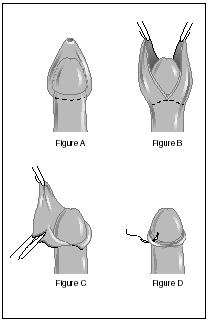Personal Care and Hygiene - Genital care for males
It is necessary for boys to pay attention to the health of their genital area. However, like girls, boys contend with societal pressures to not talk about their genitals. They are often embarrassed to speak to anyone about any problems or questions they may have about their genitals. It is important for both boys and girls to learn about their genitals, ask questions, and practice good hygiene in order to maintain health.

Keeping the Genital Area Clean
Boys should wash their genitals every day. This includes washing the penis, the scrotum which holds the testicles, the anus, and pubic hair (if puberty has been reached) with water and mild soap. For cleanliness after urinating, the penis should be shaken gently until the few remaining drops of urine are expelled. It may be wiped as well. Following a bowel movement, the anus should be wiped. Covering public toilet seats with toilet paper is also recommended since bacteria grows easily on toilet seats. Washing hands after urinating is a must, otherwise, bacteria will be spread via the hands.
As well as washing and wiping the genitals, boys should be concerned with the kind of underwear and pants they wear. Underwear or pants should not be too tight, and they should be well ventilated to help stem bacteria growth. If underwear gets wet or soiled, it should be changed. Also, towels should not be shared since they can pass bacteria.
JOCK ITCH
Jock itch, or groin ringworm, is a fungal infection (caused by certain fungi and yeasts) that usually occurs in warm weather. It is caused by wearing tight clothes that are not well ventilated. The symptoms include redness, blisters, itchiness, and pain of the groin and upper, inner thigh area. This type of infection can easily recur if not taken care of properly. A variety of over-the-counter creams are available to remedy jock itch.
Circumcised and Uncircumcised Penises
When a boy is born, he has an uncircumcised penis. This means his penis has a foreskin, or prepuce, that covers the head of the penis, or glans. The foreskin, which is about one third of the penile skin, offers protection from irritation, urine, and fecal matter. It also has sensitive nerve endings. A common procedure of removing this foreskin is called circumcision. Some people believe removal of the foreskin helps keep the penis cleaner because the foreskin can trap excretions and possibly lead to infection or disease; others believe this is an unnecessary and unhealthy procedure and that if the foreskin is washed daily, it should not pose a problem. A circumcision can be performed at any point in a man's life, but it is commonly done a few days after birth. Whether a boy is circumcised or uncircumcised, good hygiene is important.
A boy with a circumcised penis no longer has the foreskin, so he is just concerned with washing the penis with mild soap and water. If a boy is uncircumcised, the foreskin should be pulled down daily to expose the tip of the penis, which should then be washed with mild soap and water. However, do not force the foreskin down at any time. If it is painful to pull the foreskin down (and the foreskin has already detached itself from the glans), contact a physician for advice and possible treatment. Note that it is natural for the foreskin to be attached to the glans at birth and the amount of time it remains attached can vary from days to years. The average age by which the foreskin detaches is three. If the foreskin is still attached to the glans, it should never be forcibly pulled down. Just washing around the outer part of the foreskin is appropriate until the foreskin detaches. Once the foreskin does detach from the glans, it should be pulled down and the area should be washed daily.
Pulling down the foreskin and washing the area daily is important because the area under the foreskin is not well ventilated. Dead skin and an oil-like substance (called sebum, which usually doesn't appear until puberty) can accumulate under the foreskin forming a substance called smegma. This substance is a natural lubricant between the foreskin and the glans. If smegma is not washed from underneath the foreskin, it can build up and harden. This collection can lead to infections and disease. Soft smegma that is washed away on a regular basis poses no health risks; in fact, it is beneficial for erection and sexual intercourse.

I'm 25 year old boy. I have problem with pulling skin of glance. Once I start to pull , it comes to limitation & I don't pull it further. I have to use Lidocaine gel to pull it backward. It moves backward easily after using gel. But I don't want to be dependent on gel. I get time to use gel & clean underneath the glance once or twice a week only . Can you please tell me correct way of pulling it backward ?
Thank you